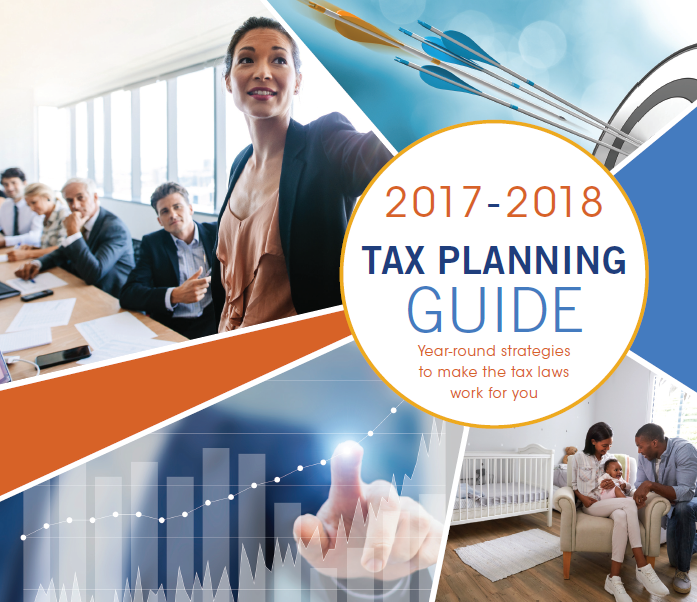No Rendering of Advice
To ensure compliance with IRS requirements, we inform you that any U.S. federal tax advice contained in this website (including any attachments or directed links) is not intended or written to be used, and cannot be used, for the purpose of (i) avoiding penalties under the Internal Revenue Code or (ii) promoting, marketing or recommending to another party any transaction or matter addressed herein.
Please be assured that this notice does not reflect any decrease in the quality of services or the amount of thought we put into our client interactions.
Any advice in this communication is limited to the conclusions specifically set forth herein and is based on the completeness and accuracy of the stated facts, assumptions and/or representations included. In rendering our advice, we may consider tax authorities that are subject to change, retroactively and/or prospectively, and any such changes could affect the validity of our advice. We will not update our advice for subsequent changes or modifications to the law and regulations, or to the judicial and administrative interpretations thereof.
For more information on Circular 230, please click here.
No Rendering of Advice
The information contained within this website is provided for informational purposes only and is not intended to substitute for obtaining accounting, tax, or financial advice from a professional accountant. Presentation of the information via the Internet is not intended to create, and receipt does not constitute, an accountant-client relationship. Internet subscribers, users and online readers are advised not to act upon this information without seeking the service of a professional accountant. Any U.S. federal tax advice contained in this website is not intended to be used for the purpose of avoiding penalties under U.S. federal tax law.
Accuracy of Information
While we use reasonable efforts to furnish accurate and up-to-date information, we do not warrant that any information contained in or made available through this website is accurate, complete, reliable, current or error-free. We assume no liability or responsibility for any errors or omissions in the content of this website or such other materials or communications. If you wish to contact the webmaster of this website, please call CPA Websites Solutions at 802-655-1519.
Disclaimer of Warranties and Limitations of Liability
This website is provided on an "as is" and "as available" basis. Use of this website is at your own risk. We and our suppliers disclaim all warranties. Neither we nor our suppliers shall be liable for any damages of any kind with the use of this website.
Links to Third Party Websites
For your convenience, this website may contain hyperlinks to websites and servers maintained by third parties. We do not control, evaluate, endorse or guarantee content found in those sites. We do not assume any responsibility or liability for the actions, products, services and content of these sites or the parties that operate them. Your use of such sites is entirely at your own risk.


Browser our newsletters for additional information.
Publications

RS, State, & Revenue Office sites
- IRS Forms
- Internal Revenue Service
- PA Department of Revenue
- Social Security Administration
- Social Security Benefits Planner
- US Department of Labor
- PA Department of Labor and Industry
- PA DCED
Useful Forms
- Change of Address - Federal
- Change of Address (Business) - PA
- Reference Card for Records
- Power of Attorney
2024 Standard Mileage Rates
| Purpose | Rates per Mile |
| Business | 67 cents |
| Medical/Moving | 21 cents |
| Charitable | 14 cents |
2023 Standard Mileage Rates
| Purpose | Rates per Mile |
| Business | 65.5 cents |
| Medical/Moving | 22 cents |
| Charitable | 14 cents |
Check It Out!
Check out the article in PICPA CPA Now by Greg Kashella, published November 2021, Enhanced Financial Statement Disclosures for Small Businesses.
Check out the article in the Central Penn Business Journal, Women Who Lead, March 2019 article featuring our partner Jori Culp
Tax-Related Identity Theft
The IRS combats tax-related identity theft with aggressive strategies of prevention, detection and victim assistance. To find out more about tax-related identity theft call our office or visit https://www.irs.gov/identity-theft-fraud-scams/identity-protection for information and guidance.
Remember that the IRS will never contact you by electronic means. This includes emails, phone calls, text messages, or social media channels. If you are ever in doubt whether contact by someone claiming to be from the IRS is legitimate, call our office first for verification.

It’s not unusual for a partner to incur expenses related to the partnership’s business. This is especially likely to occur in service partnerships such as an architecture or law firm. For example, partners in service partnerships may incur entertainment expenses in developing new client relationships. They may also incur expenses for: transportation to get to and from client meetings, professional publications, continuing education and home office. What’s the tax treatment of such expenses? Here are the answers.
Reimbursable or not
As long as the expenses are the type a partner is expected to pay without reimbursement under the partnership agreement or firm policy (written or unwritten), the partner can deduct the expenses on Schedule E of Form 1040. Conversely, a partner can’t deduct expenses if the partnership would have honored a request for reimbursement.
A partner’s unreimbursed partnership business expenses should also generally be included as deductions in arriving at the partner’s net income from self-employment on Schedule SE.
For example, let’s say you’re a partner in a local architecture firm. Under the firm’s partnership agreement, partners are expected to bear the costs of soliciting potential new business except in unusual cases where attracting a large potential new client is deemed to be a firm-wide goal. In attempting to attract new clients this year, you spend $4,500 of your own money on meal expenses. You receive no reimbursement from the firm. On your Schedule E, you should report a deductible item of $2,250 (50% of $4,500). You should also include the $2,250 as a deduction in calculating your net self-employment income on Schedule SE.
So far, so good, but here’s the issue: a partner can’t deduct expenses if they could have been reimbursed by the firm. In other words, no deduction is allowed for “voluntary” out-of-pocket expenses. The best way to eliminate any doubt about the proper tax treatment of unreimbursed partnership expenses is to install a written firm policy that clearly states what will and won’t be reimbursed. That way, the partners can deduct their unreimbursed firm-related business expenses without any problems from the IRS.
Office in a partner’s home
Subject to the normal deduction limits under the home office rules, a partner can deduct expenses allocable to the regular and exclusive use of a home office for partnership business. The partner’s deductible home office expenses should be reported on Schedule E in the same fashion as other unreimbursed partnership expenses.
If a partner has a deductible home office, the Schedule E home office deduction can deliver multiple tax-saving benefits because it’s effectively deducted for both federal income tax and self-employment tax purposes.
In addition, if the partner’s deductible home office qualifies as a principal place of business, commuting mileage from the home office to partnership business temporary work locations (such as client sites) and partnership permanent work locations (such as the partnership’s official office) count as business mileage.
The principal place of business test can be passed in two ways. First, the partner can conduct most of partnership income-earning activities in the home office. Second, the partner can pass the principal place of business test if he or she:
- Uses the home office to conduct partnership administrative and management tasks and
- Doesn’t make substantial use of any other fixed location (such as the partnership’s official office) for such administrative and management tasks.
To sum up
When a partner can be reimbursed for business expenses under a partnership agreement or standard operating procedures, the partner should turn them in. Otherwise, the partner can’t deduct the expenses. On the partnership side of the deal, the business should set forth a written firm policy that clearly states what will and won’t be reimbursed, including home office expenses if applicable. This applies equally to members of LLCs that are treated as partnerships for federal tax purposes because those members count as partners under tax law.
© 2024






